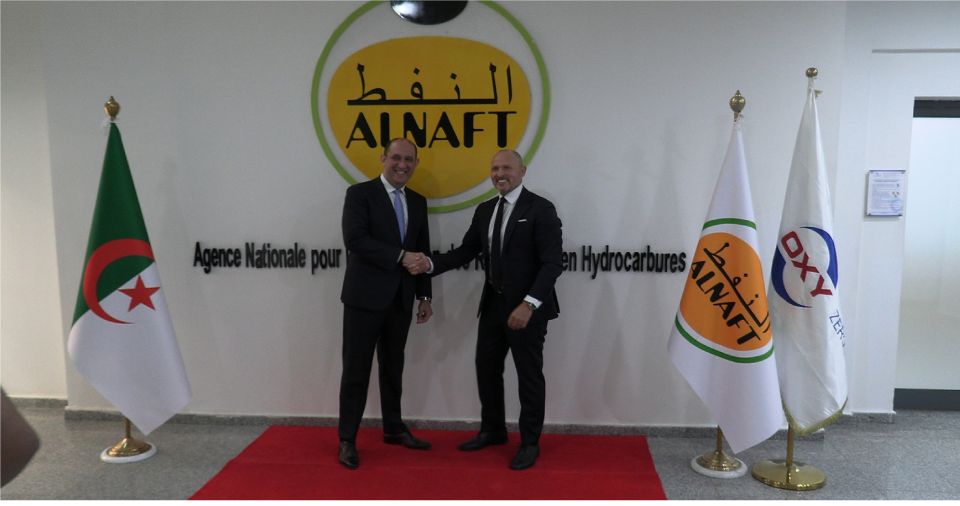By Stephanie Daniels
- Algeria and Occidental Petroleum signed study agreements on El Ouabed and Dahar
• Studies to assess hydrocarbon potential prior to any direct exploitation.
• Hydrocarbons account for 83% of Algeria’s exports and 47% of budget revenues.
Algeria said it has taken a new step in its energy cooperation with U.S. Occidental Petroleum. On August 17, 2025, the National Agency for Hydrocarbon Resources Valorization (Alnaft) announced the signing of two study agreements on the oil and gas potential of El Ouabed and Dahar, located in the south of the country.
The agreements according to a local report will aim to analyze the resources of these regions and prepare for possible future developments. “The two study agreements signed between Alnaft and Occidental Petroleum underscore their commitment to working together to advance the assessment and development of Algeria’s national hydrocarbon resources,” Alnaft said.
Energy Window International (Media) has learnt that the move has come as Algeria seeks to maintain its role as a reliable hydrocarbon supplier while optimizing the use of its reserves. It recalled the International Energy Agency (IEA) as saying that the global oil supply could exceed demand in 2025 the ongoing tensions in the Middle East notwithstanding, and this was while predicting that world oil demand growth could also reach 730,000 bpd in 2025, consequent on trade frictions and weaker demand in China and the United States.
Recalling that between 2019 and 2023, hydrocarbons represented about 83% of Algeria’s exports and nearly 47% of budget revenues, quoting the World Bank. Report also disclosed that Algeria’s budget deficit was projected at 14.5% of GDP in 2025, up from 13.9% in 2024, largely due to lower oil revenues. Adding that with the structural dependence, each potential new field could carry major weight for the country’s financial stability.
It however pointed out that even though the agreements have been signed, they were yet to provide authorization for direct exploitation, they would only take care of, at least in the interim, the technical and geological studies which would enable determination of the available resources and the conditions for developing them before any heavy capital commitments.
For stakeholders, the stakes were twofold. Occidental, already active in Algeria at several fields, strengthens its position in the local energy landscape. Algerian authorities, for their part, reaffirm their drive to broaden cooperation with international partners to attract financial and technological flows.
Energy Window International (Media) gathers that further steps would be taken based on the outcome of the study. “If significant potential is confirmed, the projects could pave the way for foreign direct investment, greater support for Algeria’s oil services industry, and stronger budget revenues.” The developments, according to the report, were totally in line with the $50 billion investment plan the country had announced in December 2024, with 71% earmarked for exploration and production.”

